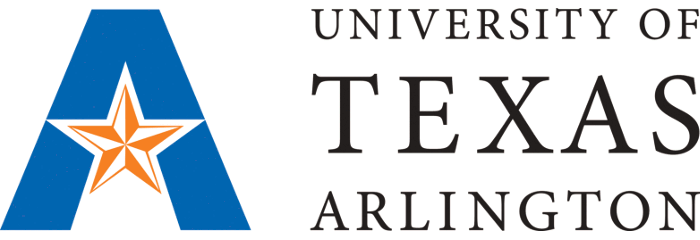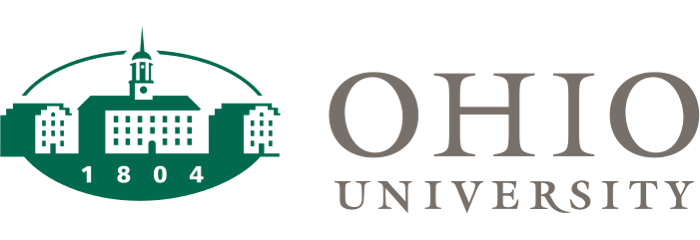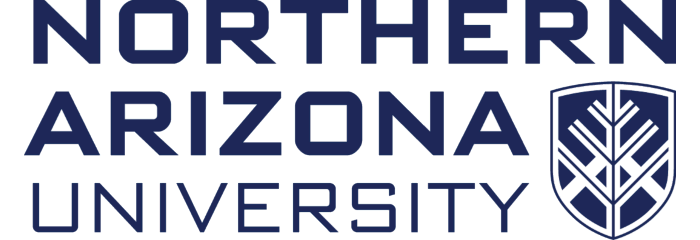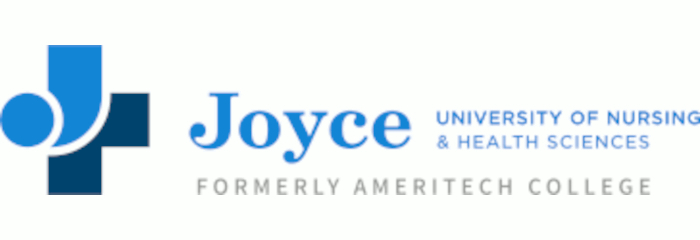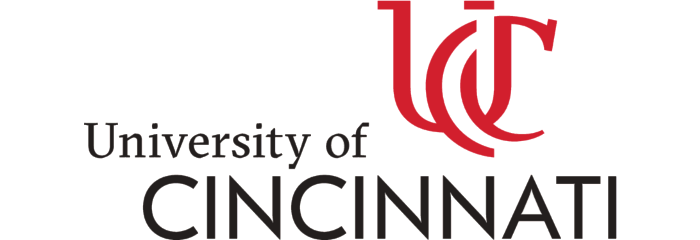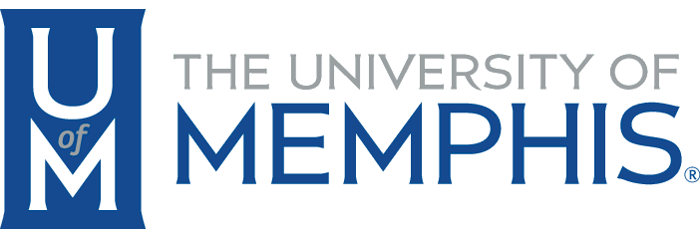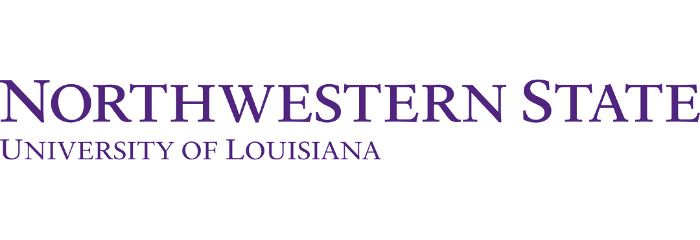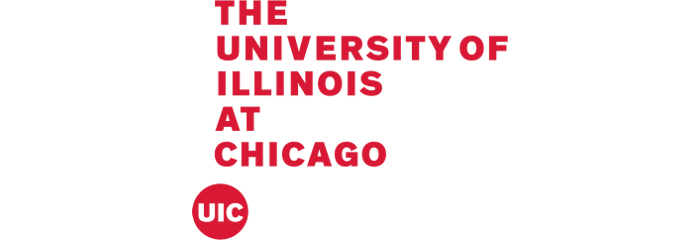Most Popular Online Nursing Programs 2025
Our ranking of the most popular online nursing programs features accredited schools producing the highest number of graduates in nursing.
Key Takeaways:
- At #1, Western Governors University leads with 7,718 graduates from its RN-to-BSN program, reflecting sustained demand and popularity.
- West Coast University leads for graduate earnings, with RN-to-BSN alumni reporting a median salary of $110,377.
- Ohio University boasts a 95% recommendation rate based on student surveys we've collected.
Read our methodology for details on rankings, inclusion criteria, and data validation.
Most Popular Online Nursing Programs 2025
| Rank | School | Graduates | Annual Tuition | Median Salary | Recommendation |
|---|---|---|---|---|---|
| Western Governors University | 7,718 | $8,300 | $97,743 | 74% | |
| Capella University | 5,561 | $14,436 | $96,740 | 76% | |
| The University of Texas at Arlington | 2,652 | $29,660 | $97,855 | 78% | |
| Ohio University - Main Campus | 1,396 | $9,630 | $83,524 | 95% | |
| West Coast University | 973 | $13,800 | $110,377 | N/A | |
| Southern New Hampshire University Online | 623 | $9,900 | $95,420 | 69% | |
| University of Phoenix | 603 | $11,940 | $109,867 | 80% | |
| Arizona State University, Online | 464 | $24,780 | $91,152 | 93% | |
| Northern Arizona University | 419 | $11,688 | $85,036 | 88% | |
| Joyce University of Nursing and Health Sciences | 370 | $20,780 | $104,711 | 100% | |
| University of Cincinnati | 363 | $13,172 | $76,330 | 86% | |
| University of Memphis | 293 | $16,890 | $75,543 | 85% | |
| Northwestern State University of Louisiana | 293 | $11,250 | $82,918 | 91% | |
| Liberty University | 291 | $11,700 | $79,773 | 75% | |
| University of Illinois at Chicago | 270 | $29,360 | $85,957 | 92% |
Most Popular Online Nursing Programs 2025 - Program Details
- Graduates: 7,718
- Annual Tuition: $8,300
- Median Salary: $97,743
- Recommendation: 74%
Why we like them: At #1, WGU awarded 7,718 RN to BSN degrees last year, which gives you the advantages of a strong alumni network and employer recognition. Nursing graduates from this program make a median alumni salary of $97,743, which is in the top 20% of nursing programs nationally. Here, you benefit from CCNE accreditation and two nurse practitioner options (FNP and PMHNP).
- Graduates: 5,561
- Annual Tuition: $14,436
- Median Salary: $96,740
- Recommendation: 76%
Why we like them: Capella produced 5,561 online nursing graduates, and the median graduate earnings stand at $96,740 after four years. It's a CCNE-accredited nursing program online with an integrated capstone-and-practicum model lets you tailor projects to your own organization, including 40 required practicum hours in Patient-Centered Care Coordination.
- Graduates: 2,652
- Annual Tuition: $29,660
- Median Salary: $97,855
- Recommendation: 78%
Why we like them: UTA boasts a statewide, partner-hospital clinical model that assigns you to faculty-supervised placements across numerous Texas regions, with most clinical hours occurring inside those partner health systems to shorten on-the-job orientation postgraduation. You also practice in UTA’s Smart Hospital, a high-fidelity virtual hospital using computerized patient simulators.
- Graduates: 1,396
- Annual Tuition: $9,630
- Median Salary: $83,524
- Recommendation: 95%
Why we like them: OHIO’s RN-to-BSN online has accelerated 5-week courses that let you build momentum quickly. This nursing program is anchored in OHIO’s College of Health Sciences and Professions, which is one of the nation’s largest. We also appreciate that this school has the best student recommendation rate on our list at 95% (based on 122 total reviews).
- Graduates: 973
- Annual Tuition: $13,800
- Median Salary: $110,377
- Recommendation: N/A
Why we like them: WCU's nursing degree program has an Accelerated Plus pace that lets you finish in as few as eight months, and it includes a community-embedded practice model that replaces traditional clinicals with 135 experience hours you choose across population-focused sites. Nursing graduates here earn the highest median salary of $110,377.
- Graduates: 623
- Annual Tuition: $9,900
- Median Salary: $95,420
- Recommendation: 69%
Why we like them: As part of SNHU's nursing degree, you gain access to HEaRT, an employer-sourced, asynchronous experiential lab where you tackle real-world projects and may earn prior learning credit. SNHU’s ANCC-accredited continuing education infrastructure provides ongoing CEUs even after graduation.
- Graduates: 603
- Annual Tuition: $11,940
- Median Salary: $109,867
- Recommendation: 80%
Why we like them: UOPX offers two RN-to-BSN tracks, including a competency-based pathway you can finish in as little as 12 months and a traditional format with one five-week course at a time. UOPX maps one employer-validated skill to roughly each credit, issues digital badges, and aligns courses to AACN and QSEN recommendations.
- Graduates: 464
- Annual Tuition: $24,780
- Median Salary: $91,152
- Recommendation: 93%
Why we like them: ASU’s RN to BSN can be completed in just 10 classes (7.5 weeks each) that include virtual simulations and project-based assignments. Students gain access to career services, research opportunities, virtual clubs, and internships. ASU’s program integrates health innovation, evidence translation, and system redesign.
- Graduates: 419
- Annual Tuition: $11,688
- Median Salary: $85,036
- Recommendation: 88%
Why we like them: At NAU's nursing bachelor's degree online, you would benefit from a dedicated BSN - American Indian Program supported by partnerships with tribal communities and culturally informed mentorship aimed at reducing health disparities. We appreciate that NCLEX pass rates consistently exceed 90%, showing that it helps produce students who are prepared.
- Graduates: 370
- Annual Tuition: $20,780
- Median Salary: $104,711
- Recommendation: 100%
Why we like them: Joyce's online RN to BSN has a four-semester, 20-month plan that is fully online and asynchronous, paired with only 45 clinical hours completed in your home community. There are some distinctive courses in this program, such as Holistic and Alternative Therapies, Genetics and Genomics with ethics, Technology in Healthcare, and Nursing Leadership and Management Systems.
- Graduates: 363
- Annual Tuition: $13,172
- Median Salary: $76,330
- Recommendation: 86%
Why we like them: Recognition as a National League for Nursing Center of Excellence and CCNE accreditation reinforce academic rigor, and you can also benefit from employer-partner tuition scholarships and tuition remission options. Also, UC has a 72% graduation rate across the board, which is the best on our entire list of schools.
- Graduates: 293
- Annual Tuition: $16,890
- Median Salary: $75,543
- Recommendation: 85%
Why we like them: Beyond clinical and management content, courses explore how economic, legal, and political factors shape healthcare delivery and nursing practice — giving graduates a broad systems-level understanding of patient outcomes and policy impacts. And graduates are invited to take part in the LCON Convocation, reflecting the program’s sense of professional identity and nursing tradition.
- Graduates: 293
- Annual Tuition: $11,250
- Median Salary: $82,918
- Recommendation: 91%
Why we like them: Northwestern boasts a 91% recommendation rate based on students we've surveyed, which suggests that you are likely to find the experience supportive and worthwhile. NSU’s emphasis on early access to state-of-the-art labs and clinical placements adds an applied component as well.
- Graduates: 291
- Annual Tuition: $11,700
- Median Salary: $79,773
- Recommendation: 75%
Why we like them: This is a CCNE-accredited nursing degree online, and the school has SACSCOC institutional accreditation. Students can transfer in up to 75% of the degree, including 39 credits automatically awarded for RN licensure, allowing many nurses to finish much faster than typical RN-BSN pathways.
- Graduates: 270
- Annual Tuition: $29,360
- Median Salary: $85,957
- Recommendation: 92%
Why we like them: UIC’s College of Nursing operates in partnership with UI Health, one of the largest academic medical centers in the Midwest. That connection gives students indirect access to current clinical innovations, population-health data, and interprofessional collaboration models. All online courses are self-paced, and UIC is a Research 1 (R1) university.
Nursing Degrees by State
- Alabama
- Arizona
- Arkansas
- California
- Colorado
- Connecticut
- Florida
- Georgia
- Hawaii
- Idaho
- Illinois
- Indiana
- Iowa
- Kansas
- Kentucky
- Louisiana
- Maine
- Maryland
- Massachusetts
- Michigan
- Minnesota
- Mississippi
- Missouri
- Montana
- Nebraska
- Nevada
- New Hampshire
- New Jersey
- New Mexico
- New York
- North Carolina
- North Dakota
- Ohio
- Oklahoma
- Oregon
- Pennsylvania
- South Carolina
- South Dakota
- Tennessee
- Texas
- Utah
- Virginia
- Washington
- Washington D.C.
- West Virginia
- Wisconsin
- Wyoming
Kiara DeWitt, Pediatric Neurology RN, on Online Nursing Education and Career Growth

Pediatric Neurology Nurse & Nursing Educator at Cook Children’s Medical Center
The Growing Credibility of Online Nursing Degrees
For working nurses seeking to advance their careers, online education is increasingly viewed as both practical and respected. As Kiara DeWitt explains, “Online degrees are finally getting treated with some respect, at least in healthcare… Most employers are asking where you trained and what you know, not whether you sat in a chair for four semesters.”
DeWitt adds that the strength of an online nursing program lies in “the network, the instructors and the reputation behind the certification,” reminding students that “people will still ask who taught you.”
Building Credibility Through Applied Experience
DeWitt cautions that real-world experience remains essential in an online degree: “Programs still need clinical or field placements. No matter how online the course is, if it has no real-world component, you are stuck.” She emphasizes that credentials matter most when paired with applied practice: “The paper alone opens the door, but the application of that education keeps it open.”
No matter how online the course is, if it has no real-world component, you are stuck.
She also encourages nursing students to continue growing their expertise after graduation. “The smartest thing a student can do is add one more thing to their training,” she advises. She suggests the following:
-
“Pick up a certification.
-
Become bilingual.
-
Learn applied behavioral analysis.
-
Volunteer 10 hours a week at a pediatric therapy clinic.
That extra 10% makes you unforgettable in a stack of resumes.”
Choosing the Right Online Nursing Program
When it comes to selecting a degree path, DeWitt advises you to think strategically about your career goals. “Figure out where you want to work and ask them what they value,” she says. She adds that clarity about future roles can help guide you toward the right academic fit: “So, figure out who signs the checks and reverse engineer your degree from there.”
This mindset, focused on aligning education with real-world outcomes, reinforces DeWitt’s larger message, which is that online learning is most effective when paired with intentional career planning and a commitment to lifelong professional growth.
FAQs About Online Nursing Programs
What Can You Expect From an Online Nursing Degree?
Nurses are the backbone of the healthcare industry. Online nursing degrees offer a flexible way for RNs to advance their careers and increase job opportunities. These programs vary in cost, schedule, and format, with some requiring in-person residencies and others offering accelerated options for faster completion.
Nursing is one of the most popular majors, and hundreds of schools now offer nursing degree programs virtually. Students typically learn to assess health conditions, develop comprehensive care plans, educate patients and the public about health, monitor admissions and discharges, and supervise staff.
Some programs have concentrations so students can tailor their studies to a focused area of practice, such as family medicine, pediatrics, geriatrics, hospice, or public health.
Online nursing programs require students to complete much of their coursework remotely and then engage in on-site clinical practice activities at approved healthcare facilities near their homes.
Which Nursing Level Is Best for Me?
The best type of nursing degree depends on which type of nurse a student wants to become. Those who are eager to enter the workforce may want to consider becoming a licensed practical nurse (LPN) or licensed vocational nurse (LVN). Students can enter these careers with only a nursing certificate or diploma, which typically takes one year to achieve.
For those who want to become registered nurses — taking on more responsibility and earning higher salaries than LPNS and LVNs — a two-year associate degree in nursing may be a better choice. Generally speaking, a nurse's earnings increase with their level of education, so a four-year Bachelor of Science in Nursing may be the best option for some. The most common online nursing programs are RN-to-BSN programs for RNs who have earned either a certificate or an associate degree and now want to complete a bachelor's degree in nursing. However, there are also online BSN programs for students who are not yet RNs and have no previous nursing education.
What Courses Are Included in a Bachelor's in Nursing?
BSN programs prepare students for professional nursing practice. Coursework helps students develop skills such as critical thinking, problem-solving, research, education, and leadership.
Some classes will involve hands-on, experiential learning activities, and most nursing programs online require a practicum in which students work in a supervised healthcare setting to gain a required number of clinical hours.
Some of the most common nursing courses include those below.
Community Health
In this course, students learn how to care for individuals, families, groups, and high-risk populations in community health settings. They learn to care for patients of all ages by recognizing physical, psychological, social, and cultural needs in order to provide interventions as needed. The course often requires hands-on application of concepts as students work in various community health environments.
Evidence-based Practice
This course provides nursing students with a systematic process for using current evidence and data to make decisions about patient care. Students learn how to research health literature, identify relevant qualitative and quantitative data, and analyze this information to make informed decisions.
Health Assessment, Education, and Promotion
Students transition to a higher level of nursing practice in this course, where they learn to conduct a comprehensive physical examination, including collecting, organizing, interpreting, and recording patient data. They also explore the role of nurses as educators by learning to use health education and promotion strategies and to overcome patients' barriers to change.
Health Informatics
Health informatics faculty introduce students to the latest information technology used in nursing practice. Students will use these tools to communicate data and other knowledge to inform patients and work with them to manage their care.
What Types of Online Bachelor's Degrees in Nursing Are Available?
There are two main types of online bachelor's programs in nursing: direct-entry BSN, RN to BSN, and second-degree BSN. Each degree combines information-based classes with on-site clinical experience. Many online nursing programs also come with an accelerated option.
The table below highlights typical prerequisites, the average time to completion, and additional links for each degree.
Direct-entry BSN | High school diploma | Four years
RN to BSN | RN license | One to two years
Second-Degree BSN | Non-nursing bachelor's degree | Two to three years
Bridge Programs
Online nursing bridge programs may help nurses with existing credentials gain a higher degree in less time. For bachelor's students, the relevant program is the RN-to-BSN path. These programs usually require one year of work as an RN, but some programs allow students to submit an essay on nursing topics instead.
Bridge programs also generally require that nurses transfer 60 credits of general education and nursing courses. Applicants must have completed foundational courses in physical sciences, math, social sciences, and humanities.
Accelerated Nursing Programs
Accelerated and second-degree programs might help students to graduate college early by giving credit for previous experience or letting them take more classes in less time. Second-degree programs in nursing are designed for students who already have a bachelor's degree in a non-nursing area.
Accelerated programs are intensive and generally have high admissions standards.
Most second-degree programs in nursing advise incoming students not to hold a job while completing the program, as the coursework and clinical practicums are very demanding.
What Should You Consider When Choosing an Online Nursing Program?
Career goals, specialization, and relevant experience will dictate which online nursing programs may suit you best. You'll need to decide how far you want to go with your career and what your plans are for the future. Once determined, you can start looking at specific schools and programs and what they have to offer that will help you meet your goals.
Below are some other factors to consider when choosing an online nursing program.
Accreditation
Accreditation ensures program curriculum, faculty, and learning outcomes meet state and national standards and is necessary for licensure. The (CCNE) programmatically accredits many traditional bachelor's and master's programs, and the (ACEN) accredits those online. Either is accepted for licensure. The can help identify accredited nursing programs.
Cost
It's important to choose an affordable program that meets educational and career goals while mitigating any student debt that you may incur. Earning transfer credits at a community college can help save money. Along with federal financial aid, students often choose to apply for private scholarships to help offset costs. You might also consider the costs associated with obtaining and maintaining a nursing license.
Degree Level
Students should pick the level appropriate to their background and career goals. It may help to look at several careers to note the degree requirements and research employers of interest to find out what they specifically want in a healthcare worker.
Exam Pass Rates
The NCLEX was developed by the (NCSBN) as a way for nursing graduates to prove competency and earn state licenses. Most schools post NCLEX pass rates on their websites, allowing students to gauge the quality of their nursing programs by how many students pass on the first try.
Support for Online Learners
It can be challenging to complete a nursing program online without staff and faculty nearby. Therefore, it's essential to consider what kind of support for online students is available. For example, schools may offer writing and tutorial services online, library services and access to librarians, tech support, and opportunities to engage with other students through online clubs and associations. It's also important to ask about the best way to contact faculty and how quickly they typically respond.
What Can You Do With a Bachelor's in Nursing?
Graduates can become registered nurses with a nursing certificate, associate degree, or bachelor's degree. This career pays median wages of and features a 5% growth rate in new jobs through 2034.
Online BSN programs typically prepare students to pass their nursing certifications, including the NCLEX exam, and to obtain a license to practice nursing. Each nursing degree option also opens the door to different specializations. Prospective nurses who want to pursue a particular area of focus should pick a program that allows them to reach their desired level of specialization. We've listed a few specializations below.
Cardiac Care Nurse
These heart specialists provide care to patients during hospital or outpatient stays, including monitoring ongoing cardiac conditions. A large part of their work involves educating patients on the best ways to take care of themselves. RNs typically need one of several specialty certifications to find work as cardiac care nurses.
Geriatric Nurse
Geriatric nurses specialize in working with older adults. They perform assessments, administer medications, and prepare and update nursing plans for their patients, among other tasks. RNs can become geriatric nurses with only an associate degree, but some states require a BSN and possibly additional certification.
Pediatric Nurse
Pediatric nurses are RNs who work with children. They provide routine check-ups, administer medications and immunizations, and conduct screenings for developmental conditions. Many states require pediatric nurses to have a BSN, and some require them to obtain special certification in addition to their nursing licenses.
How Do I Get a Nursing License?
To legally practice as a nurse, all nursing candidates in the U.S. must first graduate from an accredited nursing program. They must then apply for an RN nursing license from their state nursing board, which requires passing the NCLEX, administered by the .
There are two types of examinations — the NCLEX-RN, which is for registered nurses, and the NCLEX-PN, which is for practical nurses. The tests are designed to ensure that nursing professionals have the appropriate healthcare and professional knowledge before they begin working with patients and handling sensitive healthcare information. Nursing students can find more details about the contents of the exams on the website.
In addition to passing the appropriate NCLEX exam, nursing candidates must meet their state's board of nursing requirements to obtain licensure. Some states also require licensed nurses to complete during each license renewal period to demonstrate their knowledge and update their skills. Students can check with their state board to learn more about their specific licensing requirements.
What Are the Requirements for Renewing a Nursing License?
Requirements for renewing a nursing license vary by state, but in most cases, nursing licenses need to be renewed once every two years. Some states set a specific deadline for renewal, such as the nurse's birthday.
Almost every state requires nurses to complete a documented number of continuing education hours, called CEUs or "contact hours," in order to maintain their licenses. The number of contact hours required may vary depending on whether the nurse works full or part time. If a license lapses, delinquency fees may occur. However, fees can be avoided if nurses request to have their licenses put on inactive status during their time away from work.
Approximately two-thirds of the states in the U.S. have entered into the . This interstate agreement allows nurses who qualify for the multistate license to practice on-site nursing, telenursing, and nursing education in any of the states in the NLC without obtaining separate licenses for each state.
Is an Online Bachelor's in Nursing Degree Worth It?
A bachelor's degree in nursing can open up many career opportunities. However, there are some specific advantages and disadvantages students may want to explore when deciding whether to pursue a BSN, particularly through distance learning.
Potential Benefits
- This degree has the potential to pay off in terms of salary. According to the Bureau of Labor Statistics (BLS), the median annual salary is for RNs with bachelor's degrees, as compared to licensed nurses with associate degrees who earn a median annual salary of .
- The BLS predicts that about for registered nurses will emerge over the next decade through 2034, and a bachelor's degree could help make graduates more competitive in the job market.
- Earning a BSN online allows students to choose from a broader range of schools without moving to a new location. It also means that they can complete coursework on their own schedules and fulfill requirements for clinical hours at healthcare facilities close to home.
Potential Drawbacks
- A BSN requires two additional years of education beyond an associate nursing degree, which means a higher cost for the degree and more time out of the workforce are required.
- As with other distance-learning programs, some online nursing students may feel somewhat disconnected from their peers, and they may not always reap the rewards of sharing information and experiences with classmates, which often occurs within the classroom environment.
- Some nursing jobs require long shifts during nontraditional hours, especially when working in a hospital or emergency care environment. Aspiring nurses who want a more traditional work schedule may prefer a career in a physician's office.
How Long Will It Take to Earn My Nursing Degree?
It depends on how much nursing education you already have. If you have an associate degree in nursing (ADN), you might finish an RN-to-BSN program in 1-2 years. Administrators design traditional BSN programs to take four years with a full-time schedule, but most college students take more than four years to finish.
Can You Get a Nursing Degree Online?
Many colleges offer fully online nursing degrees at all levels, including the bachelor's level. However, each program requires a certain amount of clinical experience hours in a healthcare facility.
Are Online Nursing Degrees Legitimate?
Accredited online colleges are legitimate — not to mention increasingly respected — so make sure to only consider schools with institutional accreditation. These institutions work to ensure that their online programs feature the same level of quality as on-campus offerings.
Student Reviews of Online Nursing Programs
The school got great teachers, great resources, flexible schedule. Teachers are very patient and attend to every student by their needs and they are always prompt to answer and assist. The enrollment department too is very great as they elaborate so well on the school and various programs they offer.
Review Date: 3/11/2025
Would Recommend: Yes
Helpful for Career: Yes
Chamberlain University has allowed me to return to school full time while accommodating to my needs to work full time as well. Their faculty truly care about the wellbeing of their students and their success. At first, I was hesitant to continue with Chamberlain since it was not as "prestigious" as other schools, but if I could go back in time, I would choose Chamberlain again.
Review Date: 3/16/2025
Would Recommend: Yes
Helpful for Career: Yes
I would recommend Chamberlain to anyone! Everyone has been so helpful since I have enrolled. Even when I thought I was going to have to drop out of school because of life circumstances, staff was so supportive! They helped me push on and now I have three more classes to go until I graduate! I may return for my masters!
Review Date: 3/22/2025
Would Recommend: Yes
Helpful for Career: Yes
My RN-BSN program was structured with the most professional, fair minded yet caring professors that encouraged class interaction enriching my learning. I enjoyed the classmates that hailed from all over the country and learning about their career experiences was both intriguing and fun! I love that I can say that I am a Chamberlain graduate and also an inductee of the Sigma Theta Tau honor society!
Review Date: 3/19/2025
Would Recommend: Yes
Helpful for Career: Yes
As an older nurse returning to school to complete by BSN, I wanted a program that understood my needs. Chamberlain University understands the needs of an older person who has never utilized on-line training before. The support and the care of the professors and advisors has been exceptional- everyone wants you to excel and be successful. They provide many resources and offer assistance whenever needed. Someone is always available to help. I can't say enough great things about this program!
Review Date: 3/13/2025
Would Recommend: Yes
Helpful for Career: Yes
Pros: Study at your pace, excellent mentor, quick services when there are any issues, they work with you, and the school as a whole is understanding/friendly people. Cons: Grading system! The professors do NOT grade the assignments. There are a separate set of people who grade the assignment. They are supposed to grade what is required, but they fail you each time because they unnecessarily require you to do more than what is required. I had to complain about this a few times. One professor said... Read More
Review Date: 7/13/2023
Would Recommend: No
Helpful for Career: No
I started my BSN at Chamberlain college of Nursing in January 2020. In couple of months, COVID made our lives misreable, but Chamberlain didn't let that affect my learning, and they made online learning full of knowlwdge and very enjoyable. All the professors are great, and they are happy to help me every time I have a question. Advisors also show that they care about you. Overall, I have a really good experience with Chamberlain.
Review Date: 11/23/2020
Would Recommend: Yes
Helpful for Career: No
I have been enrolled at Aspen University from FEB 2015 and will graduate Summer 2017 with a BSN. I could not be more pleased with every aspect of my nursing program. It is hard work. You must be intelligent, motivated, and a self-starter to experience the benefit of a well-rounded educational experience. On-line learning is much more challenging than the classroom setting. If you are not willing to put in at least 20 hours per week, per course, then don't waste your time or money. The work is rigorous.... Read More
Review Date: 9/18/2016
Would Recommend: Yes
Helpful for Career: Yes
After having been out of school for 20 years, I went back for my BSN. Chamberlain made it painless. I worked full time and finished my BSN with Honors! The professors were Great and they also work other jobs, so they understand our crazy schedules. Do it, you wont regret it!
Review Date: 10/11/2018
Would Recommend: Yes
Helpful for Career: Yes
Chamberlain university treats its students as family. The university foster an environment of care and support. The instructors create a platform for open communication for students to get deeper insight on the subject matter. The university strives to give unlimited support to students and their families.
Review Date: 3/9/2025
Would Recommend: Yes
Helpful for Career: Yes
Chamberlain University is hands down the BEST nursing school you could attend. You hear about college recruiters saying how the staff and school really cares about their students and how you will always be put first as the student, but Chamberlain Tinley Park was the first school to actually show me that continuously! They embody what it means for a school to truly build its students into excellent professionals.
Review Date: 3/13/2025
Would Recommend: Yes
Helpful for Career: No
Chamberlain is a great school. It is a very caring environment. This is my 2nd semester here and I truly feel at home. The campus size coupled with caring professors who wants to see us succeed is what makes chamberlain a wonderful school. It is an accelerated program which doesn't allow us no real time to breathe(lol), but overall I definitely recommend this school.
Review Date: 3/13/2025
Would Recommend: Yes
Helpful for Career: Yes
My enrollment with Chamberlain was easy and made my anxiety about going to nursing school a little easier to manage. The process was simple and easy to understand. So far I’ve only had difficulty with one professor but other than that my experience has been amazing. I enjoy the hybrid teaching because it gives me the chance to utilize the time more efficiently. I work full time and have children at home so my life is occasionally chaotic, but my time with Chamberlain hasn’t been overwhelming to the... Read More
Review Date: 3/23/2025
Would Recommend: Yes
Helpful for Career: Yes
Chamberlain University of Nursing is an exceptional institution that offers a comprehensive nursing education. The faculty is highly knowledgeable and supportive, fostering an environment that encourages student engagement and success. Students benefit from hands-on clinical experiences that prepare them for real-world challenges in healthcare settings. Additionally, the university's commitment to innovation and excellence ensures that graduates are well-equipped to meet the demands of the ever-evolving... Read More
Review Date: 3/17/2025
Would Recommend: Yes
Helpful for Career: Yes
Chamberlain University is a wonderful school. The cost is a bit high, but it goes towards the resources and the facility. It is a very clean, and welcoming environment. The resources that are provided by the school are vital to your success in the program. The New Orleans campus is very welcoming, and you feel the "New Orleans vibe" of hospitality, caring, and friendliness. You must remember it is collegiate learning, so you MUST put in work. Nursing is notoriously one of the hardest bachelor programs... Read More
Review Date: 3/12/2025
Would Recommend: Yes
Helpful for Career: No
Great school. Chamberlain cares about your success but you have to be willing to put in the work. The classes move very quickly but I believe all of the stress is going to be worth it in the end. My classmates and I are very close and our professors are very open and easy to communicate with so you are never alone.
Review Date: 3/19/2025
Would Recommend: Yes
Helpful for Career: No
Wonderful school full of wonderful teachers and other staff. They are so supportive in this journey which is so hard to begin with. They go above and beyond to make sure ypu succeed and provide all the resources you could imagine. I would recommend this school to anyone and everyone.
Review Date: 3/10/2025
Would Recommend: Yes
Helpful for Career: Yes
Overall, the campus and the people were ok. The pre-nursing classes I took for the ABSN program were good and challenging and the instructors were ok-no real complaints there. One of the sisters was rude. Some students in my genetics lab class group were very rude one day which I had to report and it was quickly corrected. But the communication was very poor from the nursing department. I made it clear to the clinical coordinator that I was unable to get a flu shot and she gave me the impression,... Read More
I am writing this review to warn others who may be considering the nursing program at Immaculata University in Malvern, PA to know that they will NOT be successful in any nursing program if they do not get a Covid shot and flu shot.
Review Date: 1/16/2025
Would Recommend: No
Helpful for Career: No
Beware. I was promised that I could take proficiency exams to get credit for being an LVN. Every time I would talk to someone they said they would get me the information I needed but they would never get back to me. They have been giving me the run around for 11 months and are now saying it’s too late to get credit. Because of this , I’m now 4 months behind on my anticipated completion date. Feels like a scam so they can get as much money out of you. Since this school is unreliable, my advice is... Read More
Review Date: 7/30/2021
Would Recommend: No
Helpful for Career: No
Good clinicals and in person labs. Hostile administration, fosters failure mentality, cause 30 % to repeat courses. Administration emailed all of of how they cried and failed in school. Impression wad " we suffered, so shall you. "Appeal" was removed from Nursing Handbook as an option in 2023. Very expensive, 90% on line hosted by remote, overwhelmed staff. Go elsewhere and save money and be treated better.
Review Date: 9/4/2024
Would Recommend: No
Helpful for Career: No






